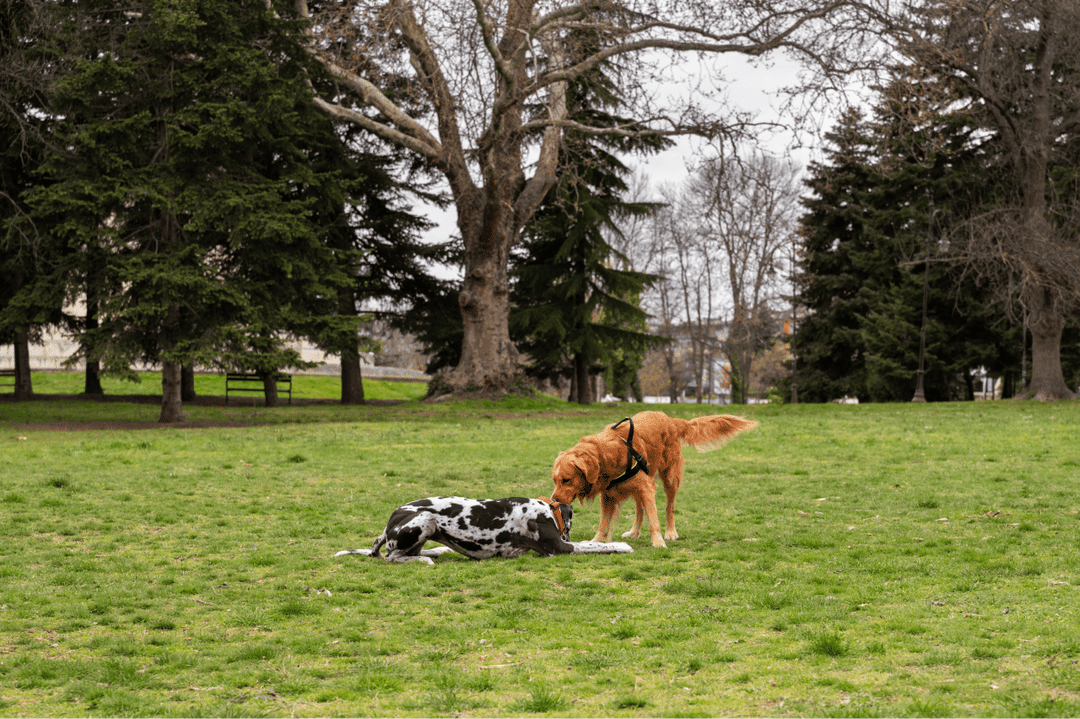
Lifestyle
Ultimate Dog Park Guide: Ensuring Fun and Safety for Your Pooch
• 2 min read
Dog parks serve as a vital community resource by providing a unique space where dogs can freely exercise, socialize, and play.
A well-designed dog park caters to the diverse needs of dogs and their owners, fostering a healthy and enjoyable environment.
Here's what makes a good dog park, and how to determine when your dog is ready for the park experience.
Key Features of a Good Dog Park 👍
Clean Environment
Essential for preventing diseases and parasites, with facilities for waste disposal and regular maintenance routines.
Separate Areas for Different Sized Dogs
Prevents bullying and injuries by accommodating dogs of various sizes in designated areas.
Amenities for Comfort and Convenience
Includes seating for owners, shade and shelter, water fountains for hydration, and wash stations for post-play cleanup.

Preparing Your Dog for the Dog Park
Your dog's first dog park experience should be positive and safe. Puppies under 4 months old, or those not fully vaccinated, should not be exposed to dog parks to avoid health risks and negative experiences.
Socialization and obedience training are crucial for all dogs to ensure they can interact safely and follow commands amidst distractions.
Ensuring Your Dog's Safety at the Dog Park
Before considering a dog park visit, familiarize your dog with other dogs in controlled settings to build their social skills and confidence. Understand that dog parks can be unpredictable, with varying dog temperaments and energy levels.
Pre-visit exercise and choosing off-peak hours can mitigate potential issues, providing a more subdued environment for your dog.
Special Considerations for Certain Dogs
Anxious Dogs
Might find dog parks overwhelming; consider alternative socialization methods.
Overreacting or Excitable Dogs
Frequent, controlled visits can help desensitize and normalize the environment.
Aggressive Dogs
Require careful management and potentially professional training to ensure safety.

Alternatives When Dog Parks Aren't Suitable
Not all dogs thrive in dog park settings. Organizing playdates with familiar dogs, inviting a well-socialized older dog for one-on-one interaction, or engaging in structured group activities can offer safer socialization opportunities.
Conclusion
Selecting the right dog park involves considering cleanliness, layout, and available amenities. Preparing your dog for the experience is just as crucial, requiring vaccinations, socialization, and training.
For some dogs, alternative socialization methods may be more appropriate, underscoring the importance of understanding your dog's unique needs and preferences.
MMDC Team
Healthy Pet, Happy Pawrents 💛